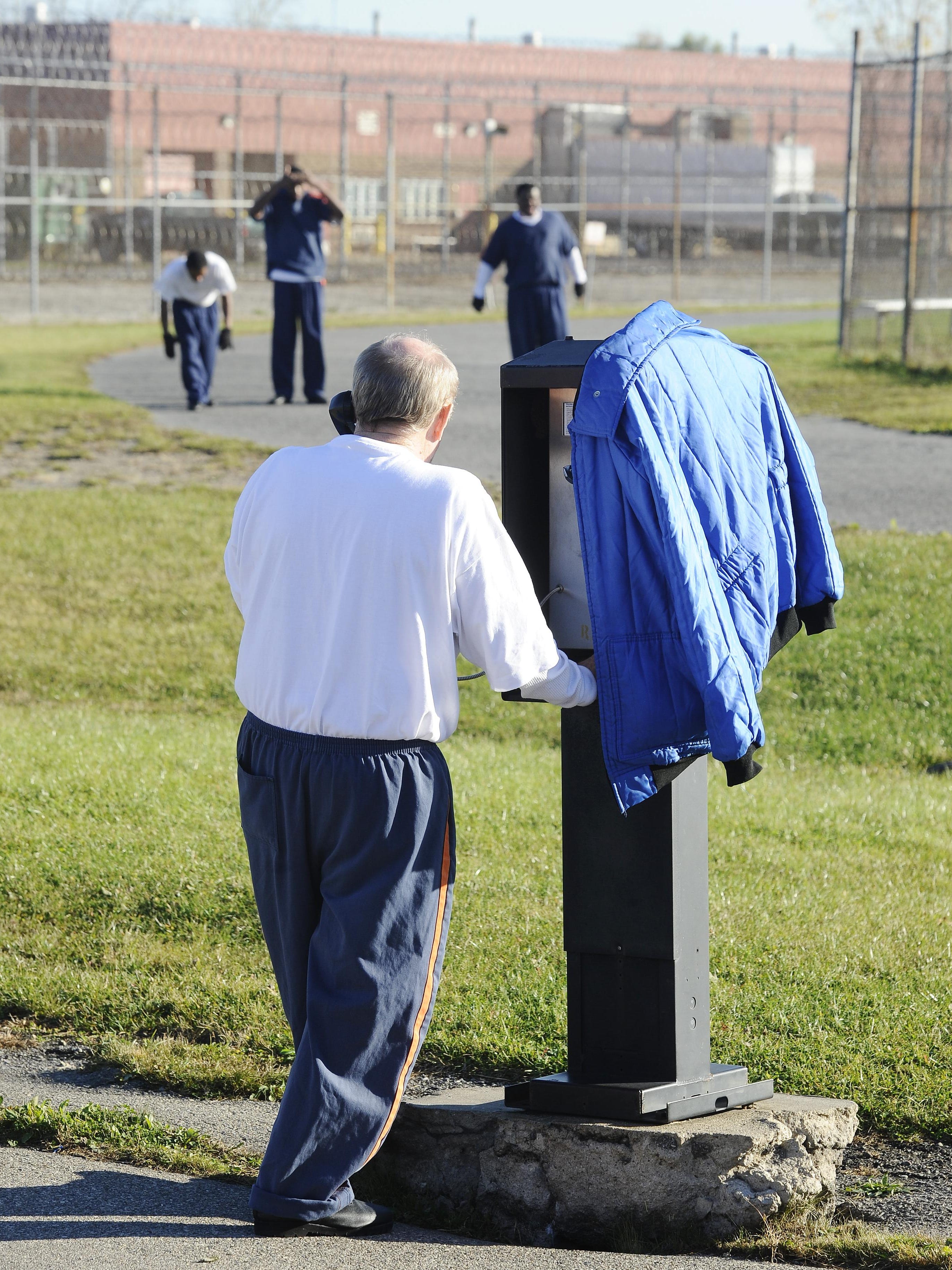Michigan cuts prison inmate phone call rates
 Jonathan Oosting
Jonathan Oosting
Lansing — Michigan prisoners and their families will pay less to talk by phone starting next month under a new agreement between the state and a private contractor.
The Michigan Department of Corrections announced Friday that inmate calls will cost 16 cents per minute, down from 20 cents for prepaid calls, 21 cents for debit calls and 25 cents for collect calls.
The rates, set to take effect Oct 8, are still higher than federal rules that were intended to ensure “just, reasonable and fair” costs for inmates but were blocked in court.
The state required the lower rates as part of a new contract with Global Tel Link (GTL), a Virginia-based telecommunications company the state first hired to manage prison call systems in 2010. The firm is expected to make $96 million on phone charges over five years.
The contract also eliminates a $3 automated payment transaction fee for inmates that applied to deposits into prepaid accounts. The changes will save prisoners, their friends and families a combined $13.5 million a year, according to the Corrections Department.
“Keeping prisoners connected with their friends and family members while incarcerated is a key factor in determining their future success and reducing their risk of re-offense,” Michigan Department of Corrections Director Heidi Washington said in a statement.
“We hope this rate reduction and fee elimination will help strengthen ties between prisoners and their support systems, leading to better lives and safer communities.”
Michigan, like many states, contracts with an outside company to run prison phone systems and collect payments. The vendor and the state each make a profit off the calls, which have helped the Corrections Department pay for security upgrades and counseling programs.
The new contract requires GTL to put $11 million each year into the state's “special equipment fund” to continue those programs despite expected revenue losses, according to correction spokesman Chris Gautz.
To make calls, Michigan prisoners must set up an account with GTL that they or their family can deposit money into. The system includes security features for both the prison and prisoners, Gautz said, including a voice recognition system to ensure inmates are not bullied for account access.
Escalating inmate costs across the country prompted the Federal Communications Commission to try to cap rates in 2015, allowing a maximum 11 cents per minute in prisons and up to 22 cents at small jails, but the rule was blocked by federal courts.
The FCC attempted to cap prison call rates at 13 cents per minute in 2016 but again met resistance in federal court. The Washington Post reported last year the Trump administration was no longer fighting the case.
As The Detroit News reported in 2015, hundreds of inmates and their family members had urged the FCC to cap rates, including Shawn Moss, who wrote from the Ojibway Correctional Facility in the Upper Peninsula that is slated to close in December.
Moss said at the time he was “not able to keep in touch with my two children and my parents” because of the price of prison phone calls and the $1.14 a day he made at his prison job.
“If these rates would be reduced, it would be possible for me to keep up with my children at school and be a part of their lives weekly.”
Gautz said the new rates were not required under any federal rule but were sought by the state when it put the contract out for bid.
Michigan prison call rates were “fairly middle of the road” nationally but the state “wanted to go in the opposite direction, he said, emphasizing that maintaining family connections can help inmates reintegrate when they are released.
“Keeping those connections is key to transitioning to life on the outside,” Gautz said.
joosting@detroitnews.com